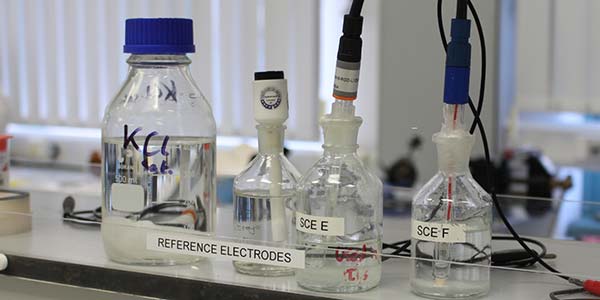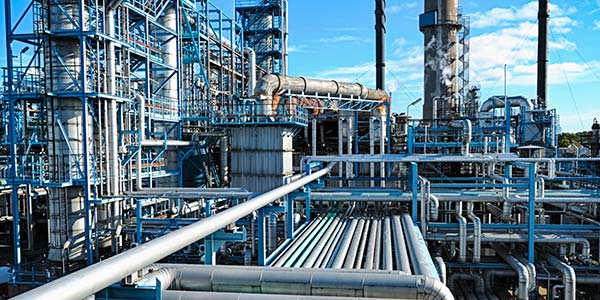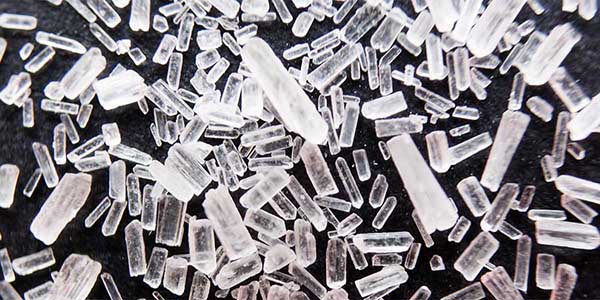
Chemical & process engineering
Our research
Chemical engineering research at Strathclyde spans the boundaries of science and engineering.
Our research applies advances in science and mathematics to develop solutions to challenges faced by industry and society, such as manufacturing medicines, delivering clean water and providing renewable energy. We research areas from controlled assembly of nanostructured materials to design of advanced reactors, and from combating global warming with novel energy storage and gas separation technology to understanding protein aggregation in degenerative diseases.
We have strong links with other engineering and science departments within the University of Strathclyde, and externally. We also work with many industrial partners.
Areas of research

Sustainability
Sustainability is the heart of future developments in materials and technologies, and the Sustainability research cluster underpins a variety of research areas, particularly plastics, processing and energy.

Electrochemical Engineering & Catalysis
The Electrochemical Engineering & Catalysis cluster is leading the charge in creating efficient and sustainable processes using innovative materials, techniques, and technologies.

Adsorption & Porous Materials
The Adsorption and Porous Materials cluster deploys cutting-edge science and technology to address pressing challenges in adsorption processes, as well as in the design, synthesis, characterisation and application of porous materials.

Particle Engineering
In the Particle Engineering Cluster, we lead the design of novel particulate products and sustainable manufacturing processes. We engineer innovative solutions for real-world challenges, from affordable medicines and food manufacturing to a wide range of nanostructured functional materials and cutting-edge biomedical devices.

Scholarship of Teaching and Learning (SoTL)
The Scholarship of Teaching and Learning (SoTL) research cluster is dedicated to advancing educational research and scholarship in teaching and learning, with a strong emphasis on teaching innovation, inclusivity, and curriculum development.
About the Department of Chemical & Process Engineering
We have strong links with major chemical engineering employers worldwide, and are at the forefront of chemical engineering research, stretching across the boundaries of science and engineering. Our research labs are equipped with state-of-the-art instruments for characterisation of a wide range of porous and nanomaterials.
Research Excellence Framework (REF 2021)
Strathclyde’s Engineering submission, which included the research of seven departments from the Faculty of Engineering, has the joint highest impact quality profile in Scotland and joint highest environment quality profile in Scotland, based on GPA as calculated by THE.